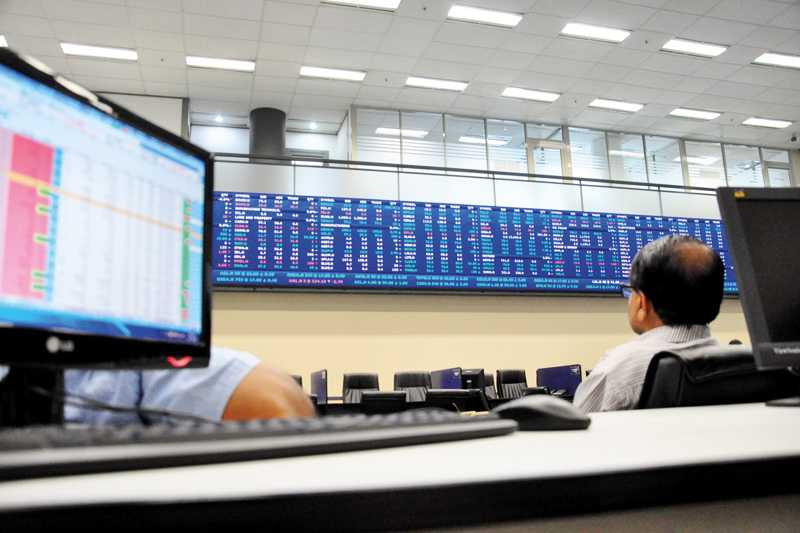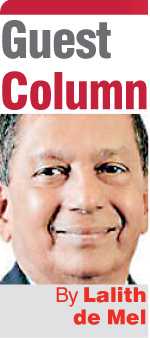Saturday Feb 21, 2026
Saturday Feb 21, 2026
Thursday, 5 November 2020 00:00 - - {{hitsCtrl.values.hits}}

A doubling of the market cap of the stock market does not do any good for Heen Banda in Kekirawa or Murugan in Kilinochchi or Malini in Minuwangoda or the millions of others like them. The creation of wealth through the stock market is exclusive growth in the sense that it benefits only a few. The stock exchange can become a facilitator of inclusive growth if it removes the two road blocks to inclusive growth
 “Economics is common sense, theoretical economics is common sense made difficult” – I believe that many years ago Professor Pigou at Cambridge University made this statement.
“Economics is common sense, theoretical economics is common sense made difficult” – I believe that many years ago Professor Pigou at Cambridge University made this statement.
I recalled this recently, when I saw many statements in the press that it was necessary to increase the market capitalisation of the stock market, as it will be a major contributor to a revival of the economy. Some well-known people have added their names to this theory. Due to this hype the stock market often gets front page top billing in the Daily FT!
I was puzzled and could not figure out the theory that would elucidate the link between the market cap of the stock market and growth of the economy. Maybe I have forgotten my theoretical economics. There may well be some economic theory linking the two. As I could not recall the theory I sought refuge in the words of Prof. Pigou and went down the common sense route to unravel this hypothesis.
The stock market
This refers to the market/exchange trading in shares. People buy or sell shares through the Stock Exchange. Details are published in the papers of the prices at which shares traded.
The market capitalisation of any company is the number of shares in the company multiplied by the latest price at which these shares were traded in the stock market. When you add up the market value of all the listed companies you get the market capitalisation of the Stock Exchange.
Movements in market capitalisation
The question is, ‘What is the significance of an increase in the value of the total stock market?’ Perhaps it indicates that investors believe that the trading performance of companies will improve and the share price will rise and the very process of bidding for shares at higher prices pushes the value of the total market.
This is a little like my horse racing betting shop, but in reverse. There, when money comes in for a horse, the odds drop and therefore a scramble to get the bet in before the odds drop. Here with the stock market it is to buy before the price increases.
Whether share prices will move up or down will depend SOLELY on the behaviour of those who buy and sell shares. No institution sets a share price. Many things will influence those trading in shares but in the end the bottom line is the perception of what is likely to happen in the future to earnings in the different companies. If one sees growth they buy and if they see a decline they will sell. In some ways it is like a game with the touch of a gamble.
Who plays buying and selling?
About 33,000 people do one or more transactions per quarter (three months). Another 37,000 do one or two transactions a year. This then adds up to the grand number of 72,000. It is well less than 1% of the population who play this game of buying and selling shares...
The Stock Exchange can be described as a small rich man’s club that plays a game of buying and selling shares to each other and that determines the total value of the stock market at any time. The Prof. Pigou approach of looking at the issue with common sense elucidates very clearly how the market capitalisation of every company is determined by very small number of people buying and selling shares to each other.
The market cap determined by the small number of players in this club has no direct link to creating economic growth for the country
The question hanging in the air is, why do some people applaud an increase in the market cap of the Stock Exchange on the premise that it is good for the wellbeing of the economy? Perhaps they or their friends have a large holding of shares and will benefit from an increase in the price of shares.
Foreign buyers
There are a number of foreign firms trading in the market. Many large firms in the financial arena in the UK and elsewhere have funds and most invariably have a few funds linked to Asian shares. They then of necessity must carry such shares in their portfolio and some will have Sri Lankan quoted shares.
These funds are more often than not traders, buying and selling for profit, as they have to pay dividends to investors in their funds. These firms cannot be perceived as long-term providers of foreign exchange.
Paper billionaires
Persons with large holdings of shares (and there are many) are deemed billionaires if their holding multiplied by the prevailing share price exceeds a billion rupees. When the market price of their shares change their wealth will also change accordingly.
They are paper billionaires because they could not all convert their shares into cash. There are no buyers to support the sale of shares of all those who now own more than a billion rupees worth of shares!
Exclusive growth
A doubling of the market cap of the stock market does not do any good for Heen Banda in Kekirawa or Murugan in Kilinochchi or Malini in Minuwangoda or the millions of others like them. The creation of wealth through the stock market is exclusive growth in the sense that it benefits only a few.
The Stock Exchange can become a facilitator of inclusive growth if it aggressively follows an approach that will take it down this road and removes the two road blocks to inclusive growth.
The problem
The problem is twofold. The big companies listed on the Stock Exchange have only a relatively small percentage hovering around 20% available to the public. If you look at the annual reports of public companies the top 10 or so shareholders are listed and one can clearly see how the controlling owners directly and through subsidiary companies hold the greater majority of the shares.
The controlling owners then have to pay out to public shareholders only a small part of the profits (often around 20%) and this helps them to increase their earnings and helps the accumulation of cash with them. That cash will sponsor investment and growth and profits but again 80 %will be pocketed by the controlling owners
The other problem in creating inclusive growth is that a large number of big companies are not quoted and are private companies owned totally by the owning families. Some of the big names that are private with the public not having even one share are MAS, Brandix, Maliban, Munchee (Ceylon Biscuits) and some other big boys have a token public shareholding.
The Stock Exchange can be very different from its current rich man’s club and become an agent for inclusive growth if it becomes the catalyst that brings about this change from exclusive growth to inclusive growth defined as “a concept that advances equitable opportunities for economic participants during economic growth with benefits for every section of society”.
If 80% of the quoted shares were held by the public including funds (which is a good vehicle to enable the public at large, the Heen Bandas, Murugans and Malinis to be shareholders) and if companies above a defined size were compelled to become public quoted companies, with 80% of the shares held by the public, the stock market will be an agent of inclusive growth.
The only way the large companies can be made to dilute and the private companies to become public companies is through taxation. If the tax rate for public companies is 25%, those with less than 80% pubic shareholding should pay 60% and private companies above a certain threshold should pay the same rate. That will focus the mind and hopefully lead to a change in behaviour.